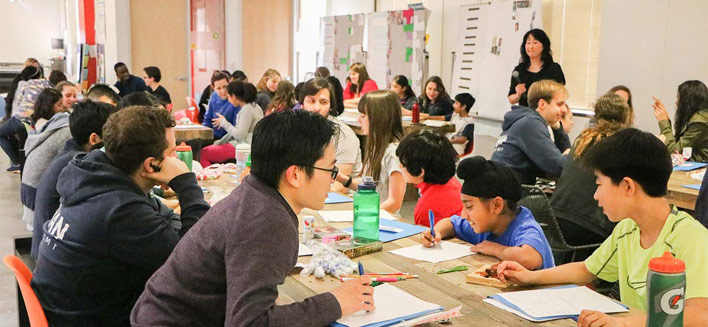
Understanding the Value of Education
Education is one of the most powerful tools for personal growth, community development, and national progress. From early childhood to higher learning, the structured acquisition of knowledge shapes how individuals think, communicate, and interact with the world. In modern society, education not only equips people with academic knowledge but also helps develop critical thinking, creativity, and adaptability—skills that are vital in a rapidly changing global landscape. When approached thoughtfully, education becomes a lifelong process rather than a stage that ends after graduation.
Historical Perspective on Education
The concept of education has evolved significantly across centuries. In ancient times, learning was primarily oral, focused on passing down traditions and survival skills. The invention of writing allowed the preservation of knowledge and the development of formal schooling. During the Renaissance, education expanded into the arts, sciences, and philosophy, creating a foundation for modern systems. Today, education is not limited to classrooms but extends to online platforms, vocational training, and self-directed learning, ensuring that individuals from diverse backgrounds have greater access to knowledge.
The Role of Early Childhood Education
Early childhood education is a crucial stage that shapes a child’s ability to learn and grow. At this stage, children develop communication skills, motor abilities, and social awareness. Programmes such as preschool and nursery classes lay the groundwork for lifelong learning by nurturing curiosity and imagination. Research consistently shows that children who receive quality early education perform better academically, socially, and emotionally later in life. Parents and teachers play a key role in fostering environments that encourage exploration, problem-solving, and confidence-building.
Primary and Secondary Education
Primary education introduces children to foundational subjects such as reading, writing, mathematics, and science. It builds the essential skills needed for future learning and daily life. As students progress to secondary education, they gain exposure to broader disciplines, including history, geography, literature, and advanced sciences. Beyond academics, these stages also emphasise character development, teamwork, and discipline. Effective secondary education helps young people prepare for either higher education or vocational paths, depending on their interests and aspirations.
Higher Education and Specialisation
Higher education, which includes universities, colleges, and technical institutes, offers students the opportunity to specialise in chosen fields. This stage is not only about academic depth but also about building professional networks, engaging in research, and developing practical skills. Graduates often emerge with qualifications that open doors to career opportunities and personal advancement. However, higher education is increasingly being redefined, with vocational training, apprenticeships, and online courses offering alternative routes that can be equally valuable for employment and skill-building.
The Digital Transformation of Education
Technology has reshaped how education is delivered and consumed. Online learning platforms, digital textbooks, and interactive tools have created opportunities for learners who previously faced geographical or financial barriers. The digital shift has also encouraged the use of blended learning, where traditional classroom teaching is combined with digital resources. While this transformation has made education more accessible, it has also raised questions about screen dependency, digital literacy, and ensuring equal access for students from disadvantaged backgrounds.
Education as a Driver of Social Mobility
One of the greatest strengths of education is its ability to break cycles of poverty and inequality. A well-educated population is more likely to secure employment, access healthcare, and participate in civic life. Education fosters independence and gives individuals the confidence to pursue better opportunities. In many societies, education has been the most reliable path to upward mobility, allowing individuals to improve not only their own lives but also the wellbeing of their families and communities.
Lifelong Learning and Continuous Development
The concept of lifelong learning has gained significant importance in today’s economy. With industries evolving at an unprecedented pace, individuals must continuously update their skills to remain competitive. Lifelong learning extends beyond formal institutions to include professional development courses, online tutorials, workshops, and self-study. Employers are increasingly valuing adaptability and willingness to learn over static qualifications, making continuous education a key driver of professional success.
Challenges Facing Education Systems
While education holds immense potential, it is not without challenges. Some of the most pressing issues include:
-
Inequality of Access: Students from rural or low-income areas often lack the same opportunities as those in urban or wealthy regions.
-
Quality Disparities: Not all schools maintain high standards, leading to significant variations in outcomes.
-
Overemphasis on Exams: Systems that prioritise test scores can stifle creativity and critical thinking.
-
Teacher Shortages: In many regions, a lack of qualified teachers affects the quality of education.
-
Digital Divide: Unequal access to technology limits the benefits of digital education for certain populations.
The Role of Teachers in Education
Teachers are the backbone of any educational system. They not only transfer knowledge but also mentor, inspire, and shape students’ outlook on life. A skilled teacher understands the needs of individual learners and adapts teaching methods accordingly. Continuous training and professional support for teachers are vital in maintaining quality education. Furthermore, teachers who encourage critical thinking and curiosity foster resilience in students, equipping them to handle challenges beyond the classroom.
Global Perspectives on Education
Education systems differ worldwide, reflecting cultural, economic, and political contexts. While some nations prioritise innovation and creativity, others focus on discipline and academic rigor. International collaboration in education has grown through exchange programmes, joint research, and global initiatives aimed at improving literacy and access. By learning from diverse models, countries can adapt best practices that suit their unique needs and challenges.
The Future of Education
The future of education is likely to be shaped by three major trends: technology integration, personalised learning, and global collaboration. Artificial intelligence, virtual reality, and data-driven insights are transforming how students learn and teachers teach. Personalised learning paths will allow students to progress at their own pace, focusing on strengths and areas of interest. Meanwhile, increasing global connectivity will encourage cross-cultural exchanges, preparing learners for a more interconnected world.
Conclusion: Building a Knowledge-Based Society
Education is more than an individual achievement; it is a collective investment in the future of society. A strong educational framework creates informed citizens, skilled workers, and compassionate leaders. By addressing challenges and embracing innovation, societies can ensure that education remains a cornerstone of progress. Whether through formal schooling, vocational training, or lifelong learning, education continues to be the most effective way to empower individuals and strengthen communities.
Frequently Asked Questions
Why is education important for personal development?
Education enhances self-awareness, builds confidence, and improves decision-making abilities. It equips individuals with skills to navigate life’s challenges and pursue personal goals effectively.
How does education influence career opportunities?
A strong educational background increases employability, provides access to specialised fields, and improves earning potential. It also develops transferable skills such as communication, problem-solving, and teamwork.
What role does education play in reducing inequality?
Education offers disadvantaged groups the opportunity to improve their circumstances. By equipping individuals with skills and qualifications, it provides a pathway out of poverty and helps close social gaps.
How is technology changing education?
Technology has expanded access to learning through online courses, digital resources, and interactive platforms. It also enables personalised learning experiences, though it requires careful management to ensure inclusivity.
Is lifelong learning more important today than in the past?
Yes, lifelong learning is increasingly essential due to rapid changes in technology and job markets. Continuous learning ensures individuals remain relevant, adaptable, and competitive throughout their careers.
What are the biggest challenges education faces today?
Key challenges include unequal access, differences in quality, exam-focused systems, shortages of skilled teachers, and the digital divide. Addressing these issues is crucial for building fair and effective education systems.








